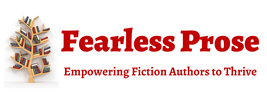|
Author: Sandy Vaile Originally published in Hearts Talk eZine's March edition 2023 Creating compelling backstory is essential for developing rich well-rounded characters that capture the interest of readers. However, the wrong backstory can turn into an information dump that slows a story’s pace to a yawn. Read on to find out how to create backstory that is relevant to the plot, so it won’t detract from what’s important: the story. It’s not enough to know everything about a character’s past, like where they went to school and what kind of cake they had at their 10th birthday party. While documenting your character’s entire life might be fun (for some) and knowing it certainly enables you to have a comprehensive understanding of who they are and where they came from, a lot of it won’t be relevant to the book you’re writing. Say what? Authors get chastised for information dumping when readers don’t see the relevance of the information. You can’t just throw information at the wall to see what sticks. Backstory must be:
But how can you make it so? What Value Does Backstory Add?Without meaningful backstory to drive characters, they come across like two-dimensional cut-outs. Void of a history or complex internal belief system. Their past is where they formed world views, developed beliefs about certain situations and became the person they are now. Therefore, their past affects everything they do in the present, including:
Example If we put three characters into the same situation, they would all behave differently. Situation A dishevelled man has stumbled into a café and is acting erratically, knocking into things and demanding to use the telephone because they’re being chased. Character 1 A university student is doing it tough because she escaped an abusive addict father, and has hidden her past from all of her new friends. She immediately prepares to flee, heart pouding, gaze watching every movement of the man, searching his eyes for tell-tale signs of drug use. Character 2 An ex-military father enjoying milkshakes with his children on the one day a fortnight he has visitation rights. He jumps to his feet, placing himself between the man and his children, grabbing a butter knife off the table and telling the children to put their backpacks on, in case they have to move quickly. Character 3 A detective has just come off duty from a long shift of taking witness statements after a hostage situation where one of the perpetrators escaped. He makes a quick assessment of where everyone is in the café and the vacinity of the exits, then sizes up the italian loafers, tailored suit and Rolex watch on the man. The man is genuinely distressed and looking over his shoulder as though expecting an assailant to come through the door any second. The dective decides he’s more likely to be a victim than purpetrator and flashes his badge. “What seems to the problem, sir?” What Makes Backstory Purposeful?A character’s backstory is critical to their motivations and beliefs. When it’s relevant to the plot, it will bring depth to the character’s journey and nuance to your writing. In the above example what each character has experienced in the past affects their view of the present situation, what they believe might happen and how they react. Understanding their backstory adds depth to the characters and realism to their behaviours and emotions. Backstory is purposeful when it adds to readers’ understanding of the present moment, e.g.:
How to Develop Relevant BackstoryWhen developing backstory for main characters, consider their lives all the way from childhood to last month, but only bother with the events that caused them to form an opinion or fear that directly opposes or supports what’s happening in the current story. Beliefs Instead of listing random (and probably irrelevant) details about their past, like where they went to school and what sandwich they had on Friday 13th, think about:
Fears and false beliefs Figure out what personal fear or false belief will make them fight against inner change and how they came to have it.This means:
Relevant to what they will faceDetermine what struggles (internal and external) they will have to face during the story and how their past will influence their decisions and behaviour.
Impacting events Brainstorm events that formed their world view and beliefs about people and situations within the story.
I recommend taking this exercise even deeper by:
Backstory is an essential aspect of character development because it provides context and depth to what they are thinking, feeling and doing in the present.
This enables readers to see them as ‘real’, sympathise with their struggles and want to follow their journey through to the outcome because they care what happens to them. Knowing where they came from provides opportunities to show personal growth during the story, so when you’re developing it, keep it relevant by think about how the character’s past interacts with the present events. Join the self-guided Write Backstory With Confidence course here.
4 Comments
27/11/2023 01:14:43 pm
Very succinct, but explained well and underpinned by solid examples that should bring perfect clarity to anyone who's struggling to understand the role - and pitfalls - of backstory!
Reply
28/11/2023 04:44:06 pm
Glad you enjoyed it, Jess.
Reply
Babs Gardner
27/11/2023 06:34:36 pm
Is it too late to sign up for this Relevant Backstory? I am ready now.
Reply
Sandy Vaile
28/11/2023 04:44:46 pm
Hi Babs,
Reply
Your comment will be posted after it is approved.
Leave a Reply. |
Fearless ProseEmpowering aspiring authors to confidently write novels they're proud to publish Categories
All
Archives
May 2024
|
© Sandy Vaile 2012-2024 |
Contact and Privacy Policy - About Sandy |




 RSS Feed
RSS Feed